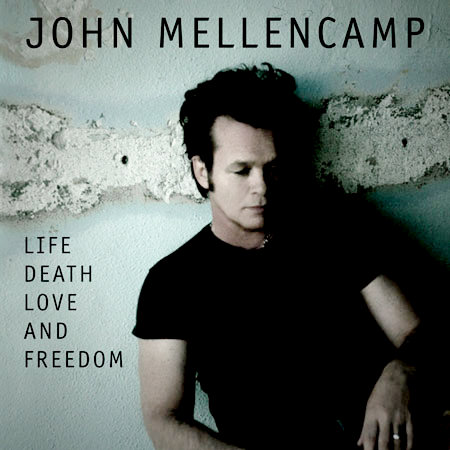
Life, Death, Love and Freedom (2008)

1. Longest Days
2. My Sweet Love
3. If I Die Sudden
4. Troubled Land
5. Young Without Lovers
6. John Cockers
7. Don't Need This Body
8. A Ride Back Home
9. Without a Shot
10.Jena
11.Mean
12.County Fair
13.For the Children
14.A Brand New Song
There’s something both satisfying and frustrating about an album like Life, Death, Love and Freedom. Satisfying because it shows an artist fully in command of his craft, creating work that’s thoughtful, honest, and—at times—achingly beautiful. Frustrating because, by the time this came out in 2008, no one on the radio was paying much attention to artists like John Mellencamp anymore. The sad irony is that while so many ‘legacy’ names were being overlooked, some—Mellencamp included—were quietly putting out the best work of their entire careers.
That’s not hyperbole. This might be Mellencamp’s finest album. Not his most fun, not his most famous—but artistically, lyrically, musically—it’s the kind of record you don’t expect someone to make this far down the road. There are no big hooks, no clever slogans, no arena-ready choruses. These are songs written by a man coming to terms with age, loss, and the shadow of mortality creeping in closer every day. As the title suggests, there’s a little room here for life, love, and even freedom—but death is the one that looms largest.
Don’t get the wrong idea. This isn’t a dirge. It’s a slow burn, yes, but one full of quiet conviction. Working with producer T Bone Burnett, Mellencamp strips everything down to its bones—acoustic guitars, sparse percussion, and a voice that’s cracked just enough to let the truth shine through. The sound is earthy and raw, and it suits the material perfectly. The songs feel less like performances and more like confessions.
Lyrically, this is some of Mellencamp’s most direct and vulnerable writing. There’s no political posturing, no snark. Just hard-earned wisdom and emotional clarity. Songs like Longest Days, Don’t Need This Body, and If I Die Sudden don’t flinch in the face of aging or death—they stare straight into it. But instead of bitterness, Mellencamp leans into acceptance. Not always with grace, but with honesty.
There are flashes of Dylan here—especially the Dylan of Time Out of Mind or Modern Times—and even Springsteen comes to mind, in how Mellencamp sings about people worn down by life but not yet fully broken. The difference is, Mellencamp keeps the focus personal. He’s not writing for characters anymore—he’s writing for himself.
This isn’t a record for everyone. It’s not meant to be. But for anyone who’s followed Mellencamp for the long haul—or for those facing the weight of life’s later chapters—Life, Death, Love and Freedom offers something more than nostalgia. It offers truth. Quiet, somber, and deeply resonant.
Go back to the main page
Go To Next Review